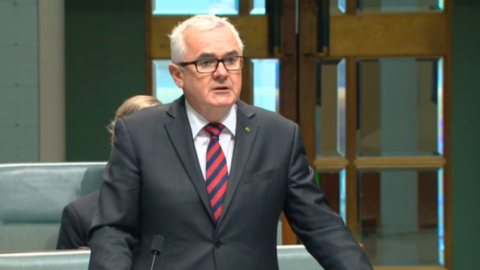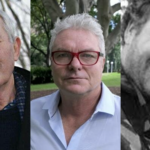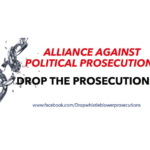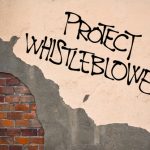Wilkie Calls for an End to Tasmania’s Punishment of Child Detention Whistleblower
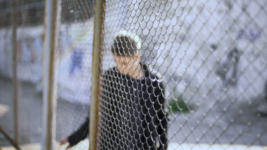
Federal Independent MP Andrew Wilkie appeared before the press last Wednesday, joined by Tasmanian MP Kristie Johnston and MLC Meg Webb, to call on the Tasmania government to bring a halt to the persecution of the Ashley Youth Detention Centre whistleblower known as Alysha.
The former youth prison clinical practice consultant, who worked at the facility between October 2019 and April 2020, was a key witness at the hearings of the Commission of Inquiry into the Tasmanian Government’s Responses to Child Sexual Abuse in Institutional Settings.
The commission was sparked over rape allegations after three staff members were stood down in November 2020, and the inquiry revelations include staff withholding detainee medication until they performed sexual acts, and a female detainee being sexually assaulted by ten male inmates.
In a letter to Tasmanian premier Jeremy Rockliff dated 8 September, Wilkie asserts that Alysha, a pseudonym, was notified “almost immediately” after she testified to the inquiry on 22 August that she would be forced to sit a fifth psychological evaluation to maintain her workers compensation.
This “weaponising of Alysha’s workers compensation matter”, as the Independent member for Clark put it, is yet another instance of Australian authorities punishing those who expose crimes of government institutions, like former ADF lawyer David McBride and ex-ATO officer Richard Boyle.
Punishing the messenger
“The state government’s treatment of Alysha has been appalling,” Wilkie said in a statement last week. “She has shown extraordinary bravery to come out and blow the lid on the scandalous treatment of the children at Ashley and should be lauded as a hero.”
Well known for his own blowing of the whistle in relation to the flawed intelligence the Australian government used to justify entering the Iraqi war in 2003, Wilkie told Rockliff that he could only describe Alysha’s treatment “as punishment for daring to give evidence and name names”.
According to Wilkie, Alysha has already undergone four psychological assessments, with different “state-sanctioned” doctors, and her own GP has warned that her patient is in no condition to undergo the “rigours of yet another unnecessary and punitive battery of psychological tests”.
The federal MP further told the Tasmanian premier that if he doesn’t put an end to the persecution of Alysha, he’s simply making a mockery of his government’s commitment to stamping out institutionalised child abuse.
“No one should be punished for doing the right thing,” he added on the 21st. “The premier needs to intervene and end this madness by sorting out Alysha’s workers compensation claim and letting her get on with her life.”
Institutionalising them
When an inquiry commissioner asked Alysha whether what she observed in her position as a member of the Ashley facility’s professional services team could be described as “rehabilitation and restorative practices”, Alysha replied, “Not in any way, shape or form.”
Part of Alysha’s role was to oversee the operations team in an attempt to improve their performance, and what she witnessed was an entrenched culture that applied fear-based behaviour management to keep the child prisoners in line.
One such measure was the use of strip-searches, which were applied in an inconsistent manner, taking “place more regularly when there were smaller younger children involved or children that were less liked within the centre, and there were certainly some kids that were just never searched”.
Indeed, Alysha said another employee told her that one of the reasons for the strip-searching of younger boys was it broke them down and got them accustomed to life on the inside, as the recidivism rate is so high, quite a few of these kids would be returning.
“Subversive isolation” was also being applied at the centre, the whistleblower added, which meant that children were being isolated but in such a way that it didn’t officially count as them having been placed in solitary confinement.
A prison state
The revelations around the abuse at Ashley come in the wake of the 2016 exposure of the torture of child detainees in Darwin’s Don Dale child prison, and in the midst of a class action being raised against WA’s Banksia Hill Youth Detention Centre.
National Justice Project director George Newhouse told the disability royal commission this week that “colonisation of this land began as a convict settlement, and when you look at Banksia Hill not much has changed in the philosophy since then…. It’s brutal. It’s cruel. And it’s just punishment”.
The same could easily be said about Ashley, which is Tasmania’s only child gaol. The Australian Institute of Health and Welfare sets out that on an average day over 2020-21, 118 youths over 10 were under justice supervision in Tasmania, with 34 percent being First Nations kids.
Alysha further described a situation at Ashley whereby two older boys, “the most violent offenders in the centre”, were known to use “assaultive behaviour” against the other inmates and she asserts it was permitted to continue as staff used it as a form of behaviour management.
These two boys, who were considered to be leaders amongst the children by prison staff, were known to have sexually assault an inmate without any real consequences, and they were further permitted to severely beat a young boy for several minutes whilst staff members looked on.
An uncivilised nation
Following the late 2020 rape allegations, the Tasmanian government announced in September last year that it would be closing Ashley down in three years’ time and replacing it with facilities that utilise therapeutic and restorative practices. The government reiterated this pledge last month.
However, following a 2017 recommendation of the royal commission into NT child detention, the territory government announced it would be shutting down Don Dale in three months’ time. Yet, the facility is still operating today. It’s overcrowded and self-harm incidents are rife.
Australia likes to project a perception of itself as a civilised nation that actively upholds human rights. But as Dostoyevsky said, the degree of civilisation in a society can be judged by looking in its prison, and down under, this is especially true when it comes to locking up kids as young as 10.
And for anyone who exposes this barbarity to the wider public, as Alysha has, they can expect to be hounded by the authorities for daring to consider that those who are incarcerated are worthy of the rights that indicate their humanity.
